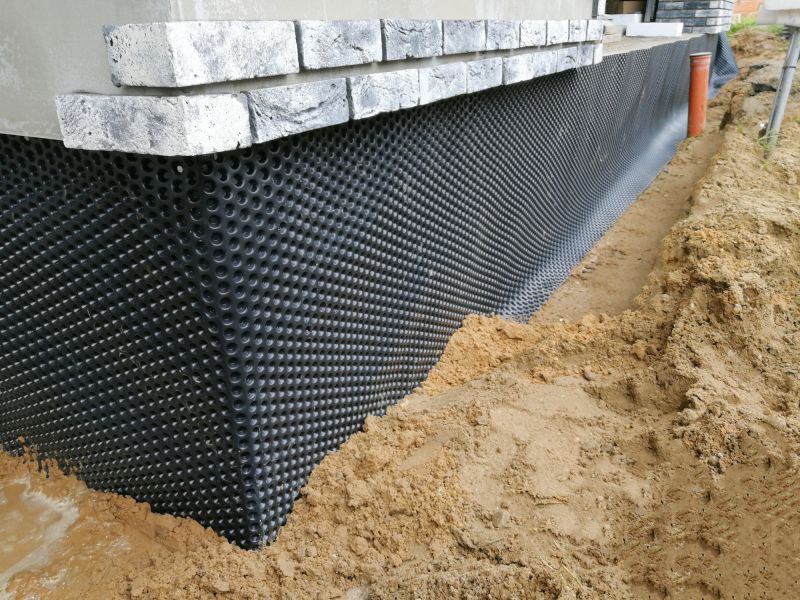Top Waterproofing Products for Long-Lasting Protection
Discover the most effective waterproofing solutions designed to safeguard your property from moisture and water damage.
 Waterproofing products are essential for protecting structures from water intrusion and damage. They serve a critical role in maintaining the integrity of foundations, basements, roofs, and other vulnerable areas. Proper waterproofing can help prevent issues such as leaks, mold growth, and structural deterioration, ultimately extending the lifespan of buildings and improving safety. When selecting waterproofing solutions, it is important to consider the specific application, environmental conditions, and the type of surface to be treated.
Waterproofing products are essential for protecting structures from water intrusion and damage. They serve a critical role in maintaining the integrity of foundations, basements, roofs, and other vulnerable areas. Proper waterproofing can help prevent issues such as leaks, mold growth, and structural deterioration, ultimately extending the lifespan of buildings and improving safety. When selecting waterproofing solutions, it is important to consider the specific application, environmental conditions, and the type of surface to be treated.
Top Overall Option
Liquid Waterproofing Membrane
A versatile liquid membrane offers seamless coverage and adaptability for various surfaces, making it a popular choice for both interior and exterior waterproofing projects. Its ease of application and ability to conform to complex shapes make it suitable for a wide range of building needs.
Types of Products For Waterproofings
Liquid Waterproofing Membranes
Fluid coatings that form a seamless barrier when applied, ideal for roofs, basements, and decks.
Sheet Membranes
Pre-formed sheets made of rubber, asphalt, or other materials, used for foundations and roofing.
Sealants and Caulks
Flexible compounds used to seal cracks and joints, preventing water entry.
Waterproof Paints and Coatings
Protective paints that add a water-resistant layer to surfaces like concrete and masonry.
Bituminous Coatings
Asphalt-based coatings suitable for roofing and underground structures.
Polyurethane Coatings
Durable coatings with excellent elasticity, used on roofs and decks.
Hydrophobic Sealants
Specialized sealants that repel water and prevent seepage in concrete and brick.
Waterproof Tapes
Self-adhesive tapes designed for sealing joints, seams, and cracks.
Crack Injection Systems
Methods for filling and sealing cracks in concrete foundations and walls.
Cementitious Waterproofing
Waterproofing coatings based on cement, suitable for below-grade applications.
Rubberized Coatings
Flexible, rubber-like coatings ideal for roofs and exposed surfaces.
Vapor Barriers
Materials designed to prevent moisture vapor transmission through walls and floors.
Waterproofing Films
Thin, flexible sheets used for waterproofing in construction joints and surfaces.
Liquid Rubber Coatings
Eco-friendly, flexible coatings suitable for various waterproofing needs.
Polyurea Coatings
Fast-curing, highly durable coatings for waterproofing and protective barriers.
Popular Choices
Widely used for sealing cracks and joints in basements and roofs.
Convenient for quick sealing of leaks and cracks on various surfaces.
Popular for extending the life of roofing systems with flexible, water-resistant layers.
Commonly used in foundation and roofing applications for their durability.
Applied to concrete surfaces to reduce water penetration and improve longevity.
Effective in preventing water seepage in masonry and concrete structures.
Easy-to-apply sprays for quick protection on outdoor surfaces like fabric or wood.
Popular for repairing leaks in concrete foundations and walls.
Reflective and waterproof coatings used to prolong roof lifespan.
Commonly used in basements and crawl spaces to control moisture vapor.
Flexible coatings suitable for various waterproofing applications on roofs and decks.
Popular for below-grade waterproofing of foundations and tunnels.
Flexible and durable, used for sealing expansion joints and cracks.
Often chosen for their ease of application and reliable waterproofing properties.
Fast-curing and highly elastic, suitable for demanding waterproofing environments.
Different waterproofing products are designed for various uses, including liquid membranes, sealants, coatings, membranes, and tapes. Each type offers unique advantages, such as flexibility, durability, or ease of application. For instance, liquid waterproofing membranes are popular for their seamless coverage and adaptability to complex shapes, while sheet membranes provide a robust barrier for large surface areas. Sealants and tapes are often used for sealing joints and cracks, ensuring a continuous protective layer.
Choosing the right waterproofing product involves assessing factors like surface compatibility, exposure to weather elements, and the required longevity of the protection. Some products are better suited for interior applications, while others are formulated for exterior use in harsh conditions. Proper surface preparation and application techniques are crucial for achieving optimal results. Consulting with professionals or following manufacturer guidelines can help ensure that the selected waterproofing solution performs effectively over time.
Overall, investing in the appropriate waterproofing products can contribute significantly to the durability and safety of a structure. Whether for residential or commercial purposes, understanding the different types of waterproofing solutions and their applications is key to making informed decisions. Regular maintenance and inspections can further enhance the effectiveness of waterproofing measures, helping to prevent costly repairs and damage in the future.
Key Buying Considerations
- Determine the specific area or surface to be waterproofed, such as roofs, foundations, or walls.
- Assess environmental exposure, including weather conditions and moisture levels.
- Choose a product compatible with the material of the surface, such as concrete, wood, or metal.
- Consider the longevity and durability of the waterproofing solution based on your needs.
- Evaluate ease of application, whether DIY or professional installation is preferred.
- Check for flexibility and elasticity, especially for surfaces subject to movement or temperature changes.
- Review the drying or curing time to plan your project timeline accordingly.
- Ensure the product is suitable for the expected level of water exposure and pressure.
- Look for products with good adhesion properties to prevent peeling or failure.
- Consider the maintenance requirements and whether reapplication will be necessary over time.
- Verify if the product is compatible with other building materials or coatings in use.
- Assess the safety data and handling instructions for proper use.
- Determine if any additional accessories or tools are needed for application.
- Research user reviews and professional recommendations for insights into performance.
- Compare costs and coverage area to ensure it fits your project budget.
